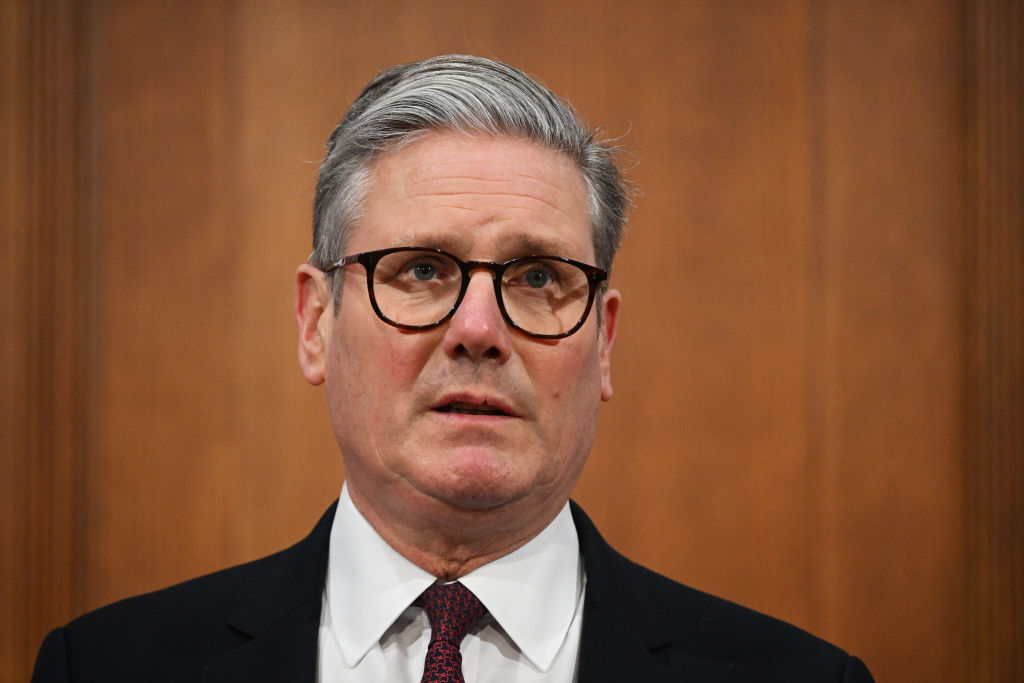Sir Keir Starmer’s attitude to Europe and the EU is hard to fathom. As a left-leaning human rights lawyer who lived in Kentish Town before he moved into Downing St, he could hardly be more of a stereotyped Remainer. He campaigned to stay in the EU and to hold a second referendum when he was Jeremy Corbyn’s Brexit spokesman. Yet by the time the Labour party manifesto was published last year, he pledged ‘no return to the single market, the customs union, or freedom of movement.’
Perhaps this week his attitude will be clarified. On Wednesday, the European Commission published a White Paper on defence and rearmament. One of the most eye-catching proposals was the establishment of a €150 billion loan instrument, snappily entitled Security Action for Europe, or ‘Safe’. The purpose of this fund is for EU member states to ‘invest in key defence areas like missile defence, drones, and cyber security.’
Our prime minister would welcome this, surely? After all, it is barely three weeks since he announced UK defence spending would rise to 2.5 per cent of GDP from 2027. Safe will provide an EU-wide funding mechanism for the UK’s neighbours to similarly start pulling their weight. Not only that, the UK is home to four of the world’s top 50 defence manufacturers. They would surely be well placed to benefit from the European coffers being flung open?
Unfortunately, as matters stand, it is not to be. The European Commission, with the enthusiastic support of the French government, has included conditions for accessing the €150 billion fund. The money can only be spent on companies which are in the EU (as well as Norway, as a member of the European Economic Area, and Ukraine, with which the EU has an ‘association agreement’) and in third-party states which have signed a security pact with the EU.
The eagle-eyed among you will have realised that this not only excludes American manufacturers, which is unsurprising, but those in the UK and Turkey as well. There is also a prohibition on weapons subject to interference, override or denial of sovereign control by manufacturers in a non-EU country, mainly meaning the United States.
These conditions mean that BAE Systems, Babcock International, Rolls Royce and Serco, all of which have their headquarters in Britain, are shut out of this additional spending.
Despite Starmer’s tireless diplomacy over the past weeks, as he has sought to mitigate the worst excesses of President Trump’s brutally transactional foreign policy, the UK has been shafted by the European Union.
That is, of course, unless the UK signs a security agreement with the EU. The prime minister is keen to agree such a relationship, as I wrote last month. But he has shown little sign of understanding what this would entail. In October last year, I reported that a possible condition would be UK participation in EU peacekeeping and conflict prevention missions. It is easy to see why the EU wants additional resources for these operations, but they would place even more strain on the UK’s stretched-to-the-limit armed forces.
Brussels sees this in wider terms. For EU leaders, a security pact would simply be part of a mix which includes migration, freedom of movement and fishing rights, and they would expect to reach a deal beneficial to them. The new Safe scheme provides additional leverage: make concessions in our ‘reset’ discussions, and UK firms gain access to substantial new defence spending.
These conditions exist, of course, to force-feed Europe’s defence industry with additional cash. Just as the EU is a fundamentally protectionist organisation, so it has long been addicted to subsidies. Safe in its existing form is designed for the benefit of French and German manufacturers like Thales, Rheinmetall and KNDS. If you can’t beat them, Brussels reworks the adage to say, regulate them out of the picture.
As accountant to the mob Otto Berman used to say, ‘Nothing personal, it’s just business’. The French government is part-owner of Thales, Naval Group, Safran and KNDS, and has acted to protect its interests and theirs.
But British manufacturers can be forgiven feeling disappointed that the prime minister’s efforts to rally Europe in the wake of Trump’s cold-eyed commercial self-interest has been met, not with solidarité, but a Gallic shrug. Was it not clear, Sir Keir? These European nations are your allies, but not your friends.








Comments